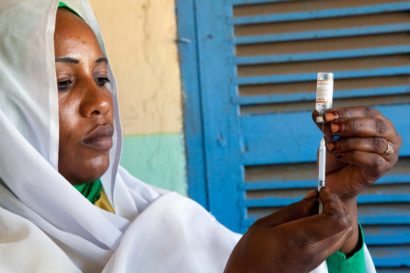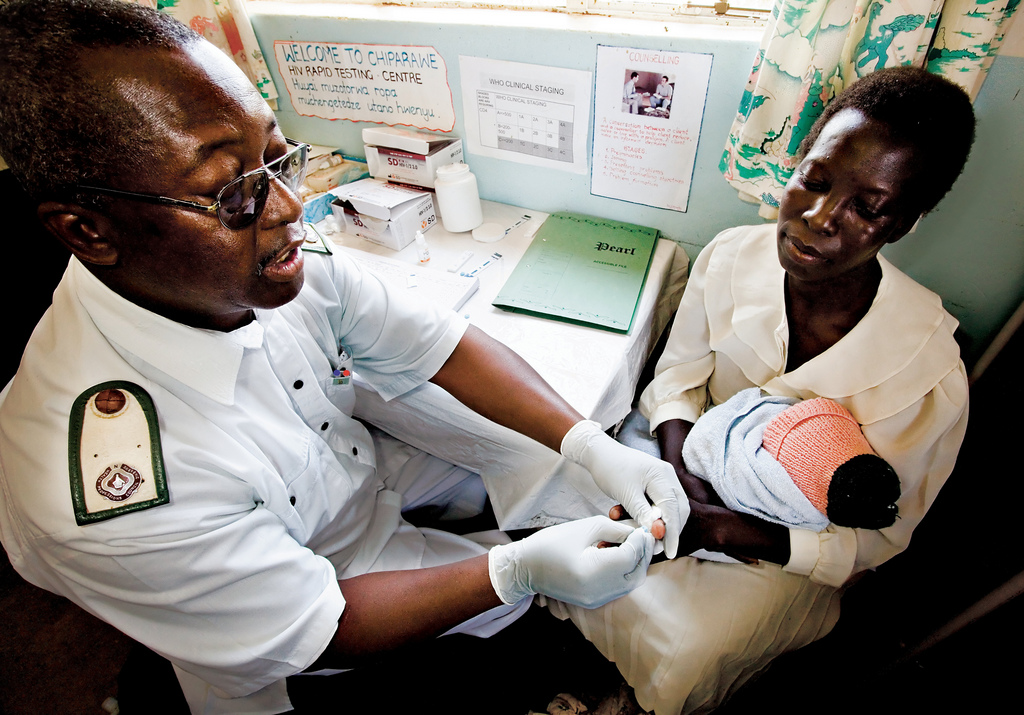Tag: HIV
In this HEART Talk Dr. Peter MacPherson provides a brief overview of the challenges and potential solutions regarding tackling communicable diseases in developing countries. This presentation was delivered as part of a professional development training session for DFID health advisers in March 2018. Subject experts from the Liverpool School of Tropical Medicine (LSTM) presented the… Read more
The K4D professional development Reading Packs provide thought-provoking introductions by international experts and highlight the emerging issues and debates within them. They aim to help inform policies that are more resilient to the future. For any enquiries, please contact [email protected] Key concepts HIV (human immunodeficiency virus) is a viral infection of humans that can be transmitted… Read more
This review has found a number of peer reviewed studies and grey literature on interventions targeted at sex workers for HIV prevention. Several were systematic reviews, some comprehensive reviews and policy papers. A number of individual studies focused on cost effectiveness are presented. Two interventions in India are considered particularly effective and scalable interventions. A… Read more
Evaluation of the evidence on the effectiveness of male circumcision (MC) suggests that implementation should be accelerated in sub-Saharan Africa. Experts reviewing six simulation models agree that programmes that focus on subpopulations with a high HIV prevalence and incidence would have substantial impact on HIV incidence. The review of the six simulation models found estimates… Read more
Everyone who was at the Durban AIDS conference in 2000 remembers the moment we learnt of effective medications for HIV. Some of us were too scared to believe it. But it turned out to be true and what unfolded was relatively straightforward. Life rapidly changed for people with the virus who were able access treatment…. Read more
Attention to the negative effects of structural barriers on HIV efforts is increasing. Reviewing national legal and policy environments with attention to the international human rights commitments of states is a means of assessing and providing focus for addressing these barriers to effective HIV responses. Recognition of the harms inherent in laws that constitute structural… Read more
There has been increasing global interest in documenting funding flows for health, but none of that work has focused on the Pacific region. This paper outlines external funding for two specific areas of overseas development assistance (ODA) for health in the region—HIV/AIDS and non-communicable diseases (NCDs)— during 2002-09. These are compared to the comparative disease… Read more
In the field of health systems research there have been some promising moves towards acknowledging and celebrating the role of people and communities. Most recently the Cape Town Statement from the Global Symposium on Health Systems Research provides a political agenda for future work in which it is acknowledged that: “The drive towards universal health… Read more
Background An increase in non-B HIV-1 infections among men who have sex with men (MSM) in the United Kingdom (UK) has created opportunities for novel recombinants to arise and become established. We used molecular mapping to characterize the importance of such recombinants to the UK HIV epidemic, in order to gain insights into transmission dynamics… Read more
This report highlights continued progress towards the global vision of zero new HIV infections, zero discrimination and zero AIDS-related deaths. The annual number of new HIV infections continues to decline, with especially sharp reductions in the number of children newly infected with HIV. More people than ever are now receiving life-saving antiretroviral therapy, contributing to… Read more
Despite extensive efforts in promoting condom use, men still engage in risky sexual behaviors due to certain myths and misconceptions. Considering the threat posed by HIV to the development of Africa, this study investigates condom myths and misconceptions among 600 adult men in a West African University population. The mean age was 24 years, about… Read more



